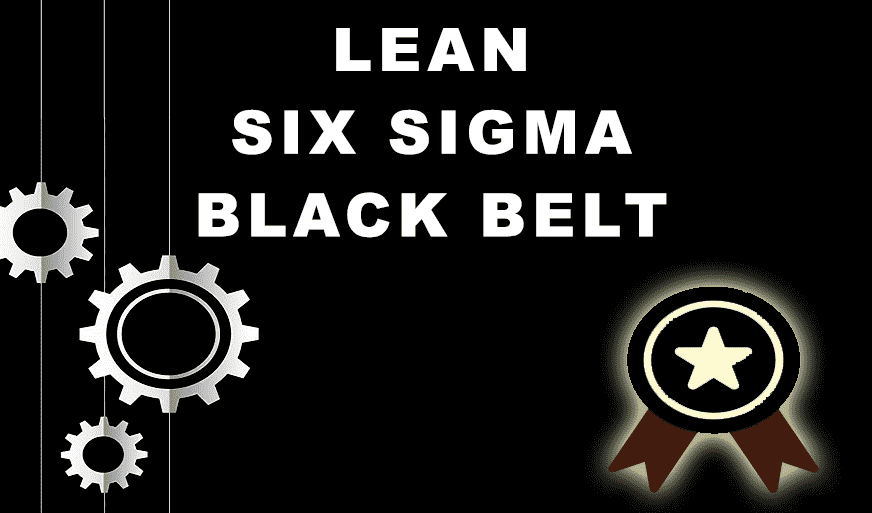Essential Components of a Quality Management System
-
 By Afra Noorain
By Afra Noorain - Published on Aug 19 2024

Table of Contents
Understanding the Essential Components of a Quality Management System (QMS)
In every industry, quality is not just a buzzword—it's the bedrock of long-term success. A well-structured Quality Management System (QMS) ensures that your products and services meet customer expectations and comply with relevant regulations. But what exactly goes into a Quality Management System? Understanding the key components can help organizations create a framework that not only ensures quality but also drives continuous improvement and customer satisfaction.
A Quality Management System is more than just a collection of guidelines; it's a dynamic system that integrates various aspects of an organization’s operations, from process management to risk assessment. Each component of Quality Management System is vital in maintaining high standards and fostering an environment where quality is a top priority. When effectively implemented, a QMS becomes a powerful tool that supports the organization's goals and enhances its competitive edge.
Let’s break down the essential components of a Quality Management System and explore how they contribute to maintaining and improving quality across the board.
Key Components of an Effective Quality Management System
Building a strong Quality Management System (QMS) requires focusing on several essential components. Here's a breakdown of the key elements that help maintain high standards, keep customers happy, and drive ongoing improvement within an organization.
- Quality Policy and Objectives
At the heart of a quality management system is the quality policy—a formal statement from management that defines the organization's commitment to quality. This policy is not just lip service; it sets the stage for everything else, outlining the quality objectives that the organization aims to achieve. These objectives should be measurable, aligned with customer needs, and reflect the company's commitment to continuous improvement.
- Document Control
From policies and procedures to records and work instructions, document control ensures that all information is accurate, accessible, and up-to-date. Imagine trying to build a house with outdated blueprints—it would be a disaster. The same goes for managing quality. A robust document control system helps avoid confusion, ensures consistency, and supports compliance with standards like ISO 9001.

- Process Management
Processes are how work gets done. In a quality management system, every process should be defined, controlled, and monitored to ensure it contributes to the overall quality goals. This covers every aspect, from the creation of the product to its distribution and all points in between. By standardizing processes, organizations can reduce variability, improve efficiency, and ensure consistent quality outcomes.
- Risk Management
The key to risk management is to avoid being reactive and instead be proactive. A quality management system should contain a systematic method for detecting, analyzing, and eliminating risks that potentially affect quality. Whether it is a potential supplier issue, a production bottleneck, or a new regulatory requirement, managing risks effectively helps avoid surprises and keeps the organization on track to meet its quality goals.
- Corrective and Preventive Actions (CAPA)
No system is perfect, and when things go wrong, it is important to have a plan in place to address them. Corrective and Preventive Actions (CAPA) are essential components of a quality management system that focus on identifying the root causes of problems and preventing their recurrence. CAPA is not just about fixing what’s broken—it is about learning from mistakes and improving processes to avoid future issues.
- Internal Audits
Internal audits are the check-ups of a quality management system. They involve reviewing and evaluating the system to ensure that it is effective and compliant with standards. Think of it like a routine health check for your organization. Regular audits help identify areas for improvement, ensure that processes are being followed, and verify that the quality management system is functioning as intended.
- Training and Competence
Quality does not just happen; it is driven by people. One of the most important parts of a quality management system is making sure that workers have the necessary training and competence to carry out their jobs. This includes everything from initial training to ongoing development and assessment. A well-trained workforce is more likely to follow procedures correctly, identify potential issues, and contribute to continuous improvement efforts.
- Customer Focus
Any quality management system's ultimate objective is to meet or surpass client expectations. This entails providing high-quality goods and services in addition to consistently asking for feedback, figuring out what the needs of the client are, and making adjustments in response to that input. A customer-focused approach ensures that the organization remains competitive and builds long-term relationships with its clients.
- Continuous Improvement
Continuous improvement is a fundamental principle of a quality management system, driving organizations to constantly evaluate and enhance their processes, products, and services. This could involve everything from incremental changes to transformative innovations. The goal is to make small gains that add up to significant improvements over time.
Why is a Quality Management System Important?
A strong quality management system is more than just a set of policies and procedures—it is a strategic asset that helps organizations manage quality systematically and sustainably. By focusing on these core components, organizations can ensure that they consistently deliver high-quality products and services, meet regulatory requirements, and continuously improve their operations.

If you are interested in diving deeper into quality management or want to develop your skills in this area, consider exploring the Quality Management courses offered by Sprintzeal. Our courses are designed to provide practical, real-world knowledge that can help you implement and maintain an effective quality management system in your organization.
Learn about more Benefits of QMS Certification for Your Business in our latest article.
Conclusion
A Quality Management System (QMS) is crucial for any organization, ensuring consistent quality across all operations. It fosters a culture of excellence, meets customer expectations, and navigates regulatory compliance. As industries evolve, the importance of a robust QMS increases, as it sets organizations apart as quality leaders.
Investing in QMS development and maintenance is an investment in the future, and Sprintzeal's Quality Management courses provide the necessary knowledge and tools to implement these principles effectively.
Take the Next Step with Sprintzeal’s Quality Management Courses
Ready to strengthen your expertise in Quality Management? Sprintzeal offers top-tier courses tailored to equip you with the skills needed to implement and manage effective QMS strategies:
- ISO 9001 Lead Auditor: Master the skills required to audit and improve quality management systems.
- Lean Six Sigma Green Belt: Learn to streamline processes, reduce waste, and enhance quality.
- ISO 13485 Lead Implementer: Specializes in implementing quality management systems for medical devices.
These courses are designed to provide practical insights and real-world applications, empowering you to lead quality initiatives with confidence. Start your journey toward excellence today. , Contact us via call or email or visit Sprintzeal Quality Management Courses to learn more and enroll!.
Subscribe to our Newsletters
Popular Programs
Trending Posts
5 Lean Continuous Improvement Principles to Supercharge Your Operations
Last updated on Jan 2 2024
10 Quality Management Strategies Adopted by Top Managers
Last updated on Apr 11 2025
A Supply Chain Management Guide to Mastering Logistics End to End
Last updated on Nov 13 2023
Lean Waste Reduction Strategies: Boost Efficiency and Cut Costs
Last updated on Jan 10 2024
Operation Manager Interview Questions and Answers
Last updated on Mar 13 2023
Compliance Manager Interview Questions and Answers 2024
Last updated on Nov 3 2023
Categories
- Agile Management 54
- AI and Machine Learning 42
- Big Data 53
- Business Management 51
- Cloud Computing 44
- Digital Marketing 56
- Information Security 8
- IT Hardware and Networking 17
- IT Security 103
- IT Service Management 29
- Leadership and Management 1
- Microsoft Program 2
- Other 43
- Programming Language 31
- Project Management 162
- Quality Management 75
- Risk Management 8
- Workplace Skill Building 2
Trending Now
Top Career benefits of Lean Six Sigma Green Belt
ArticleLean methodology, Six Sigma methodology and Lean Six Sigma Explained
ArticleSix Sigma Black Belt Certification – Value and Career Benefits in 2024
ArticlePareto Chart in Six Sigma - Explained
ArticleQuality Management Interview Questions 2024
ArticleSix Sigma Certification Guide - A Professional's Guide
ArticleSix Sigma Yellow Belt Certification - Six Sigma for Beginners
ArticleQuality Control Explained – Six Sigma
ArticleTotal Quality Management - A Complete Guide for Beginners
ArticleQuality Assurance in Six Sigma Explained
ArticleQuality Assurance vs Quality Control
ArticleSix Sigma Certification – Everything you Need to Know About Getting Certified
ArticleLean Six Sigma on Resume for Rewarding Career Benefits
ArticleQuality Manager Interview Questions and Answers for 2025
ebookService Delivery Manager Interview Questions and Answers (With Examples)
ArticleSix Sigma Interview Questions and Answers 2024
ArticleHow to become a Quality Analyst
ArticleA Supply Chain Management Guide to Mastering Logistics End to End
ArticleSenior Quality Manager Interview Questions and Answers 2024
ArticleTop 30 Quality Analyst Interview Questions and Answers 2025
ArticleFinancial Analyst Interview Questions and Answers 2024
ArticleRisk Manager Interview Questions and Answers 2024
ArticleCompliance Manager Interview Questions and Answers 2024
ArticleOperation Manager Interview Questions and Answers
Article5 Lean Continuous Improvement Principles to Supercharge Your Operations
ArticleHow to Become a Quality Manager - Career, Job Scope and Certifications
ArticleSix Sigma Certifications - Reasons Why you Should Get Them
ArticleTop Qualities of a Good Manager and a Leader
ArticleLearn about Statistical Process Control (SPC) and its top applications
ArticleCost of Poor Quality - A Detailed Guide
ArticleImplementing 5S Methodology for Better Work Efficiency
ArticleWhat Is Lean Management?
ArticleBest Six Sigma Books in 2024
ArticleLeadership vs Management - The Ultimate Guide
ArticleQuality Assurance Plan - Six Steps To Quality Assurance Plan
ArticleOperational Planning Creation, Key Elements and its Benefits
ArticleA Complete Guide to Product Life Cycle Stages 2025
ArticleSix Sigma tools for DMAIC Phases
ArticleWhat Is Lean Manufacturing?- An Overview
ArticleThe Lean Continuous Improvement Model: A Comprehensive Guide
ArticleDMAIC vs. DMADV: Key Differences and Choosing the Right Six Sigma Methodology
ArticleA Deep Dive into the Power of Lean Continuous Improvement Process
ArticleLean Continuous Improvement Methods for Business Excellence
ArticleIntroduction to Lean Manufacturing- Definitions, Framework, and More
ArticleUnderstanding the Key Principles of Lean Manufacturing
ArticleSecret to Unlock Organizational Excellence: Stages of Continuous Improvement
ArticleLean Continuous Improvement: A Detailed Guide to Mastering Organizational Quality
ArticleLean Waste Management: The Ultimate Guide 2023
ArticleA Deep Dive into Lean Continuous Improvement Tools
Article8 Wastes of Lean - Strategies for Identification and Elimination
ArticleThe Ultimate Guide to Lean Manufacturing
ArticleUnderstanding Lean Manufacturing's Pros and Cons
ArticleLean Waste Reduction Strategies: Boost Efficiency and Cut Costs
ArticleTop 10 Lean Manufacturing Tools for Optimal Productivity
ArticleBeyond the Basics: Benefits of Lean Continuous Improvement
ArticleWhat are Quality Standards? | A Guide to ISO Standards
Article7 Important Types of Quality Management System
ArticleA Comprehensive Guide to Quality Management Systems
ArticleISO 9001 Standard: Benefits and Certification
ArticleBenefits of QMS Certification for Your Business
ArticleStep-by-Step Implementation Guide to ISO 9001
ArticleThe Ultimate Guide to ISO 9001: Boosting Quality and Certification Success
ArticleQuality Management System – QSM Approaches and Methodologies
ArticleHow to Effectively Implement a Robust Quality Management System?
ArticleExplaining QMS Documentation Structure: Benefits and Best Practices
ArticleWho Needs ISO 9001 Certification and Why?
ArticleKey Elements of ISO 9001:2015 Quality Management System
ArticleOvercoming Common Challenges in ISO 9001 Certification: Tips and Best Practices
ArticleBest Quality Management Tools
ArticleTotal Quality Management (TQM) vs. Six Sigma
ArticleQuality Manager Salary: What Freshers & Experts Earn in 2025
ArticleCertified Scrum Product Owner: Job Roles And Responsibilities
ArticleTips for Continuous Integration Testing: Streamlining QA
Article10 Quality Management Strategies Adopted by Top Managers
Article

















